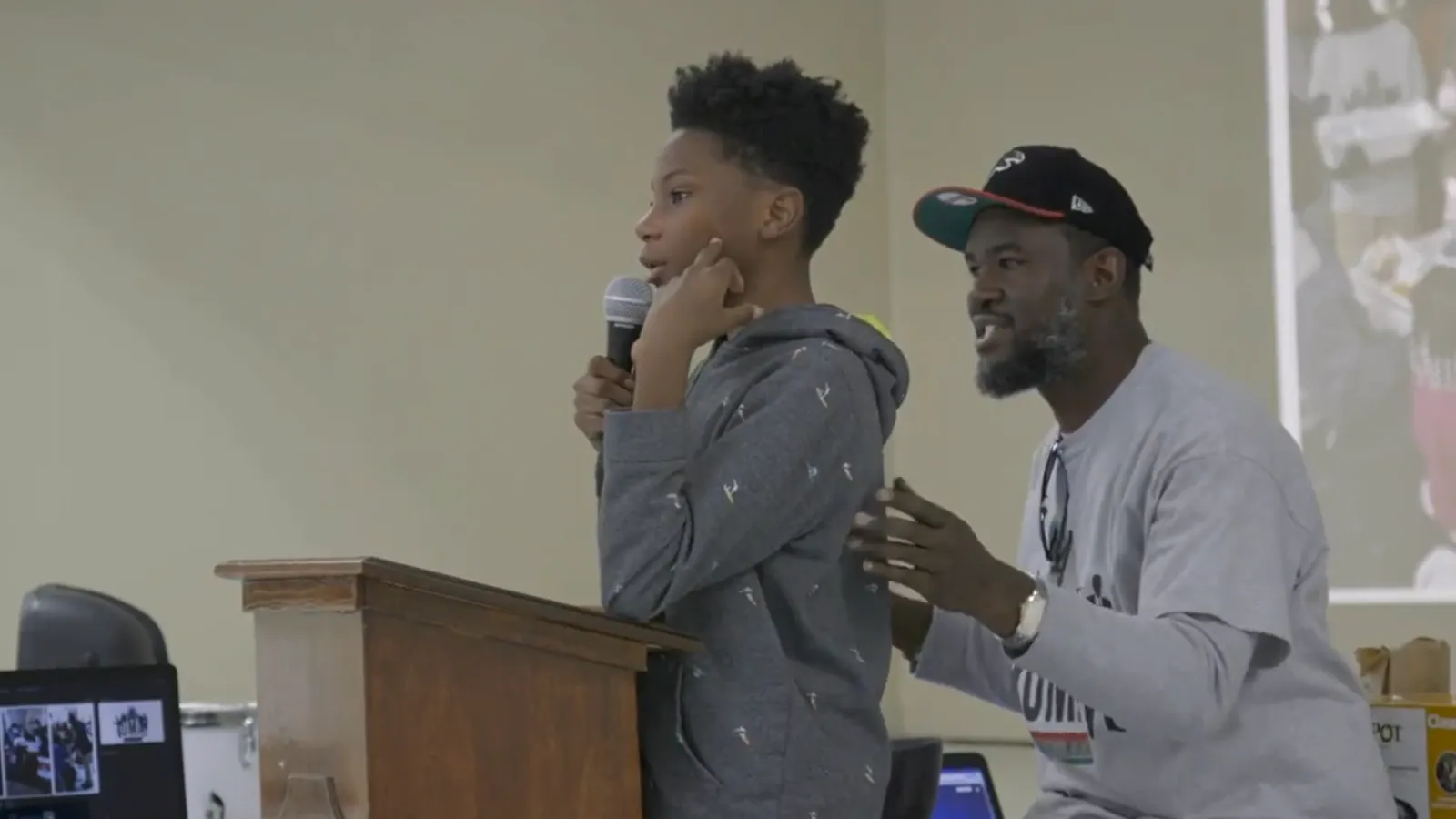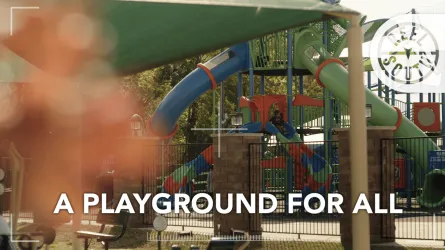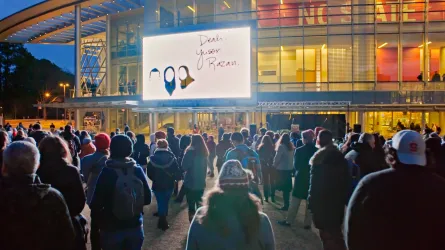Filmmaker Abbey Hoekzema discusses her new Reel South short film “Mentor,” about Tre Singleton who mentors a group of young Black men in Savannah, Georgia 30 hours a week on average. The feature shows his dedication to teach them new skills, connect them to other mentors and to generally change the narrative for young men in his community.
The interview below was edited and condensed.
What motivated you to make this film?
I was connected with Tre when I was looking to get involved with some after school programs in Savannah. I was looking to volunteer to teach some basic film classes when I met him and learned about his organization, Urban Mentoring Academy of Savannah. I was drawn to his enthusiasm and passion to support the young men in Savannah. I started teaching a monthly film class for UMA for eight months. Shortly into teaching classes, I started filming what was happening in the other after school classes Tre organized. Through filming the other classes I learned more about what Tre and his collaborators were doing and was inspired by the time they put into this small group of young men. Although not seen on film, Tre would spend most of his free time with the young men. He would pick them up from school, take them to UMA, drop them off at home, find work opportunities for them on the weekends, connect them with other mentors that can teach them skills they can use to make money. He wants to change the narrative for young black men in Savannah and give them the resources and tools they need to be successful. He's listed as a point of contact for a handful of the young men at schools when a parent or guardian is needed to come in. He does so much for these kids that I really wanted to share with others what he does.
What audiences do you hope to reach?
I would like to reach individuals that are considering volunteering in their communities or mentoring others.
What changes do you hope your film inspires?
I would like this film to encourage people to get involved in their communities. Tre gives a considerable amount of his time to others, which not everyone is able to do, but what time you can give to an individual or to a larger group does make a difference especially among young adults.
What is your history in filmmaking? Do you have any advice to someone starting?
I earned my MFA in Documentary Film Production from the University of North Texas in 2014. I have directed and produced a series of documentary shorts including this one. My projects typically cover social justice topics and coming of age films. My past work includes directing: Migrant (2019), Into the Canyons (2014) and Photos in the Wind: A Joplin Tornado Story (2013). I co-produced a documentary on female soccers players in the West Bank, Palestine in (2017) and I am currently producing my first feature documentary The Caregivers that follows caregiving youth, children (8-18) that provide healthcare to a sibling, parent or grandparent. I also am an Assistant Professor at Georgia Southern University where I teach film production and studies.
As for advice, I would encourage a new filmmaker to watch as many documentaries as you can and to practice your craft. Find things that are fun to film to practice and build confidence in your work. Don't worry too much at first if something is good or bad. You are going to make mistakes which will teach you to become a better filmmaker. Also, get involved in your local film community. Finding others that are interested in film will help you build a support network and find your own mentors.
Can you give us a few more details into the group you formed?
DOC Savannah is a collective of nonfiction filmmakers in Savannah, GA. We formed in Fall 2018. We meet once a month where we do work-in-progress screenings for different filmmakers, workshops and social gatherings. We are forming a non-profit this spring to start building a more formal organization to make connections with Savannah. We are starting to work together as a group to make films about Savannah as we don't typically see these stories being made. We hope to grow as a community of storytellers. The group is open to students, professionals and general documentary enthusiasts.
Were there any moments that you wished you captured on film but didn't? If so, what were they?
I wish I had been able to capture more one-on-one interactions between Tre and his mentees. He's often hanging with a larger group of kids, but he makes himself available to the young men on a case by case basis.
What surprised you while making this film? Challenged you?
I was challenged by the editing. When I started filming, I wasn't intending to make a film. I just wanted something to film. This made it a little hard in the edit when I felt that I could tease a story out of the footage. I also had a lot going on in my personal life that once I knew I wanted to turn this into a film, I wasn't actually able to film as much as I wanted.
What part of the film was your favorite?
I'm not sure I have a single favorite part. I honestly just really enjoyed being around Tre and the young men at UMA. Tre's energy and world views are beautiful. He inspired me to be a better person and to paraphrase something Tre told me "if we want a better world we have to speak it into existence." Because of him, I found the courage to find other documentary filmmakers in Savannah and form a collective of artists that want to work together to tell stories about our communities.
What are your future plans with Trey and his organization?
Tre's group of mentees has really transformed since I started filming. It is now open to both young men and young women. They've been mostly focusing on drumline and art this semester. Tre and I have talked about doing another film workshop in the future with the mentees.
Category
Share


